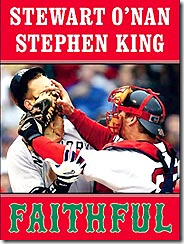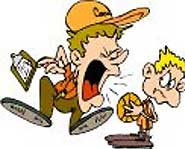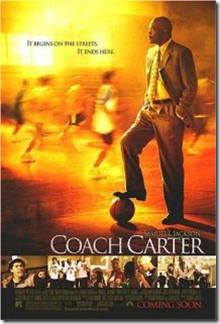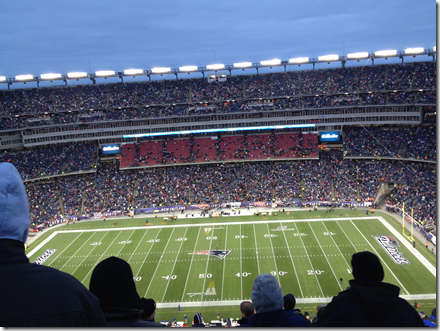We won that game three separate times, and then we lost.
/Excluding Super Bowl losses and a playoff loss to the New York Jets a couple years ago, yesterday’s Patriots loss to the Arizona Cardinals might have been the most difficult loss to bear in my entire life, for the following reasons:
1. It broke a home opener winning streak which began ten years ago with a miracle comeback victory against Buffalo that I watched from within the confines of Gillette Stadium. It was one of only three times that my friend has ever been willing to hug me.
2. It was a perfect day for a football game, and home openers are always special. Troy Brown was inducted into the Patriots Hall of Fame and Drew Bledsoe threw him one more pass on the turf of Gillette Stadium. Military jets soared overhead as the national anthem concluded. The sky was blue, the air was warm and the bacon-wrapped chicken chunks were a thing of beauty. The steak was cooked to perfection. It was a day fitting of a victory. A blowout, even.
2. The Patriots lost to the Arizona Cardinals at home. The Cardinals are not a good team.
3. The Patriot were not outrun, out passed or out tackled yesterday. They did not play well, but they were beaten by a blocked punt, a tipped ball that resulted in an interception, a phantom holding call and a phantom false start. Though the Patriots certainly deserved to lose the game, they lost the game thanks to a handful of unusual and somewhat freakish plays.
4. Worst of all, I thought the Patriots had won three separate times.
First, there was the fumble with two minutes to go that gave the Patriots the ball back within field goal range, down by two. Though it was foolish to begin celebrating the victory at this moment, we did.
Next was Danny Woodhead’s touchdown run which would have put us ahead by 5 with less than a minute on the clock, only to be called back by the aforementioned phantom holding call. We had already been celebrating victory for a full 30 seconds before we even saw the flag.
Finally, there was a the missed field goal, which looked good from our angle in the stadium, prompting us to begin celebrating victory again only to learn 10 seconds into our leaps and screams and high-fives that the kick went wide left.
The kicker had already made four field goals that day with ease. Two were over 50 yards. He had successfully kicked 24 consecutive fourth quarter field goals up until that point.
Then he missed a 42-yard field goal with one second left on the clock.
It was a series of emotional swings over a five minute period of time like few I have experienced in my life, and it left me empty and exhausted.
My former students have said that I can be surly and demanding the day after a Patriots loss. My current batch of kids should count their lucky stars that we have the day off for Rosh Hashanah.
Perhaps I will feel a little better tomorrow.













